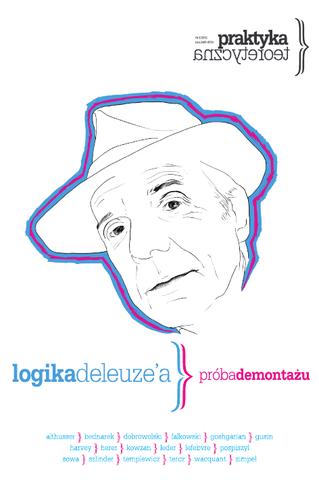Tiqqun: Grundbausteine einer Theorie des Jungen-Mädchens (1999/2009) [German]
Filed under book | Tags: · biopolitics, biopower, body, capitalism, consumerism, desire, feminism, labour, metaphysics, philosophy, reification, seduction, sexuality, theory

“Das Junge-Mädchen (la Jeune-Fille) ist die Gestalt, die Ewig-Weibliches und ewige Jugend in sich vereint. Seinen Ursprung hat es im Bankrott des von der totalen Kommerzialisierung überrannten Feminismus. Einzig fähig zu konsumieren (sowohl in der Freizeit wie bei der Arbeit), ist das Junge-Mädchen zugleich das luxuriöseste Konsumgut, das gegenwärtig in Umlauf ist: die Leit-Ware, die dazu dient, alle anderen zu verkaufen. Mit dem Junge-Mädchen wird Wirklichkeit, was sich nur die überdrehtesten Krämerseelen erträumten: die autonome Ware, die spricht und geht, die lebende Sache.
Doch woran erkennt man es? Zunächst daran, dass es ist, was es zu sein scheint, sonst nichts. Zum zweiten hat alles, was das Junge-Mädchen tut, etwas Professionelles an sich, da es seine gesamte Existenz als eine Frage des Managements betrachtet. Als Eigentümerin ihres Körpers, verkauft das Junge-Mädchen (»Sternchen«, Model, Reklame, Bild) seine »Verführungskraft« wie man einst seine »Arbeitskraft« verkaufte. Selbst seine Liebschaften sind Arbeit, und wie jede Arbeit prekär… Schließlich altert das Junge-Mädchen nicht, es verwest.”
„Julien Coupat und seine Freunde können nicht die Autoren der in TIQQUN veröffentlichten Texte sein, weil diese in einer Zone angesiedelt sind, in der es unmöglich ist, zwischen Subjekt und Dispositiv zu unterscheiden, d.h. in der der Begriff des Autors jegliche Bedeutung verloren hat.“
Der Text ist in seiner ersten Version in der Nummer 1 von Tiqqun im Januar 1999 erschienen. Die vorliegende Übersetzung folgt der überarbeiteten Fassung in: TIQQUN, Premiers matériaux pour une théorie de la Jeune-Fille, Rennes 2006.
Übersetzt von Deutsche Sektion der PI (Parti Imaginaire)
Merve Verlag, 2009
IMD 334
ISBN 3883962716, 9783883962719
120 Seiten
PDF
French edition (2001)
English edition (2010)
Praktyka Teoretyczna, No. 5: Logika Deleuze’a – próba demontażu (2012) [Polish]
Filed under journal | Tags: · biopolitics, ethics, marxism, neoliberalism, philosophy, psychoanalysis, theory

Na temat statusu Logiki sensu Gillesa Deleuze’a jej osobliwej architektoniki, „neostoickiej” etyki wydarzenia, bezbożnej noologii, relacjach z psychoanalizą – piszą w numerze specjalnym „Praktyki Teoretycznej” Michał Herer, Jakub Tercz, Jacek Dobrowolski, Andrzej Leder, Joanna Bednarek i Michał Gusin. W numerze również obszerny dział Varia, a w nim: kluczowy tekst marksizmu aleatorycznego – O genezie Louisa Althussera wraz z komentarzem G. M. Goshgariana, rozważania Loïca Wacquanta o historycznej antropologii faktycznie istniejącego neoliberalizmu opatrzone repliką Jana Sowy, oraz artykuły Davida Harveya, Henriego Lefebvre’a.
Editors of the issue: Mateusz Falkowski, Anna Wojczyńska
Publisher: Międzywydziałowa „Pracownia Pytań Granicznych” UAM, Poznań, July 2012
ISSN: 2081-8130
310 pages
PDF (single PDF)
View online (HTML/PDF articles)
View online (Issuu.com)
Melissa Gregg, Gregory J. Seigworth (eds.): The Affect Theory Reader (2010)
Filed under book | Tags: · aesthetics, affect, anthropology, autopoiesis, biopolitics, cultural studies, everyday, geography, mimesis, philosophy, psychology, schismogenesis, sociology, synaesthesia

This field-defining collection consolidates and builds momentum in the burgeoning area of affect studies. The contributors include many of the central theorists of affect—those visceral forces beneath, alongside, or generally other than conscious knowing that can serve to drive us toward movement, thought, and ever-changing forms of relation. As Lauren Berlant explores “cruel optimism,” Brian Massumi theorizes the affective logic of public threat, and Elspeth Probyn examines shame, they, along with the other contributors, show how an awareness of affect is opening up exciting new insights in disciplines from anthropology, cultural studies, geography, and psychology to philosophy, queer studies, and sociology. In essays diverse in subject matter, style, and perspective, the contributors demonstrate how affect theory illuminates the intertwined realms of the aesthetic, the ethical, and the political as they play out across bodies (human and non-human) in both mundane and extraordinary ways. They reveal the broad theoretical possibilities opened by an awareness of affect as they reflect on topics including ethics, food, public morale, glamor, snark in the workplace, and mental health regimes. The Affect Theory Reader includes an interview with the cultural theorist Lawrence Grossberg and an afterword by the anthropologist Kathleen Stewart. In the introduction, the editors suggest ways of defining affect, trace the concept’s history, and highlight the role of affect theory in various areas of study.
Contributors: Sara Ahmed, Ben Anderson, Lauren Berlant, Lone Bertelsen, Steven D. Brown, Patricia Ticineto Clough, Anna Gibbs, Melissa Gregg, Lawrence Grossberg, Ben Highmore, Brian Massumi, Andrew Murphie, Elspeth Probyn, Gregory J. Seigworth, Kathleen Stewart, Nigel Thrift, Ian Tucker, Megan Watkins
Publisher Duke University Press, 2010
ISBN 0822347768, 9780822347767
416 pages
PDF (no OCR, updated on 2013-1-23)
Comment (1)
